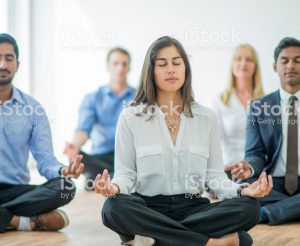Sleep Hygiene: What you can do to help you sleep

What your body does during the day is just as important as what your body does during the night. Sleep is highly important for health and wellbeing. Ensuring you are getting the sleep you need is one of the best methods of self-care. Last week we provided 5 tips to help you have a better sleep, this week we have 5 more to get you sleeping optimally.
1. Sleep in a dark, cool and quiet room.
Setting up your bedroom in a way that helps the body carry out the natural sleep cycle can be very helpful for your sleep. Keeping the room dark is important because when the body senses darkness, it produces melatonin which helps you fall asleep. The temperature in your room is also important for your sleep. Naturally, our body temperature drops before bed, so making the room cold will help mimic this natural effect and help you to fall asleep. Sleeping in a quiet room increases the amount of deep sleep and improves the quality of sleep.
2. Establish a relaxing routine before bed.
By doing relaxing activities, such as having a bath, reading, journaling, knitting or mediation, you decrease the amount of cortisol in your body. Cortisol is your stress hormone which works opposite to melatonin levels: when melatonin is high, cortisol is low and sleep is initiated. When melatonin is low, cortisol is high and you wake up.
3. Don’t lie in bed for more than 30 minutes.
If you are having trouble falling asleep or if you wake up in the middle of the night and can’t return to sleep, do not spend more than 30 minutes in bed awake. Instead, get out of bed and do some relaxing activities, or perhaps carry out your relaxing bedtime routine. Ensure you are keeping the lights low when you get up.
4. Go outside first thing in the morning.
The sleep-wake cycle established by the body is what wakes us up in the morning and helps us to fall asleep at night. It is called the circadian rhythm. One of the main drivers behind the circadian rhythm is the production of melatonin. Melatonin production is started when the body senses darkness and helps the body to fall asleep. Conversely, melatonin production is inhibited when there is light. By going outside first thing in the morning, you are telling the body it is time to be awake and will help to cycle you back to sleep when it is dark out.
5. Do not eat a large meal before bed time but if hungry have a small, light, healthy snack.
Large meals may lead to reflux, heart burn and other digestive pains which may result in poor sleep. However, it is also important to eat if you need help regulating blood sugars. Sometimes having low blood sugar after not eating can wake a person up at night. If you have this problem, eat a light snack with tryptophan. High protein snacks like turkey, fish, poultry, eggs, soy protein are the best as they can provide tryptophan needed to produce melatonin and serotonin.
You can read more of our sleeping tips here.
Photo by bruce mars on Unsplash



